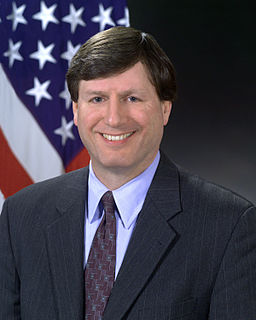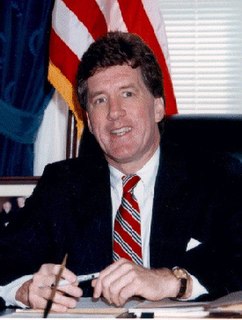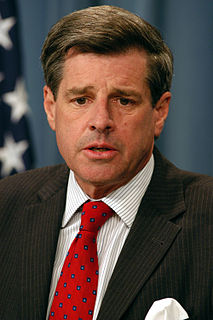A Quote by Stephen Cambone
Over the course of two years, we arrived at a point where we began to look at the value added by making information more easily accessible across the intelligence community, both defense and national.
Related Quotes
That ‘hundreds and hundreds’ was taken totally out of context. When I was making a point to this person, I was making a point that over my 31 years in the National Football League I’ve seen a lot of changes. There were hundreds and hundreds of things over those years that I’ve seen that have gotten better. Domestic violence is one of those.
If Israeli intelligence that has been shared with the United States - whether the National Security Agency, the C.I.A., the Defense Department, or the White House - is not safely guarded, Israel faces a major threat to its security. Cooperation with America's agencies is deeply embedded in Israel's intelligence community.
The intelligence community's 2002 National Intelligence Estimate (NIE) stated, in a formal presentation to President Bush and to Congress, its view that Saddam had weapons of mass destruction - a belief in which the NIE said it held a 90% level of confidence. That is about as certain as the intelligence community gets on any subject.
We do know from our intelligence community that Russia had a design to discredit the U.S. elections, and took sides in favor of Mr. Donald Trump over Hillary Clinton. We do now that they engaged individuals and entities to do cyber-attacks to get as much information as they possibly could, and of course, also used WikiLeaks to accumulate information, and released it in a strategic way that could affect our election, and certainly the credibility of our election.
When I talked to [Donald Trump] about - our intelligence agencies, what I've said to him is - is that there are gonna be times where you've got raw intelligence that comes in and in my experience, over eight years, the intelligence community is pretty good about saying, "Look, we can't say for certain what this means." But there are gonna be times where the only way you can make a good decision is if you have confidence that the process is working, and the people that you put in charge are giving you their very best assessments.
If we consider the actual basis of this information [i.e., intelligence], how unreliable and transient it is, we soon realize that war is a flimsy structure that can easily collapse and bury us in its ruins. ... Many intelligence reports in war are contradictory; even more are false, and most are uncertain. This is true of all intelligence but even more so in the heat of battle, where such reports tend to contradict and cancel each other out. In short, most intelligence is false, and the effect of fear is to multiply lies and inaccuracies.


































